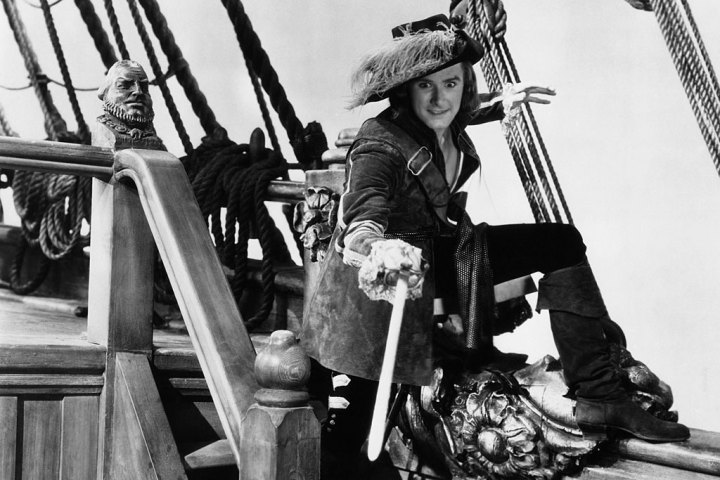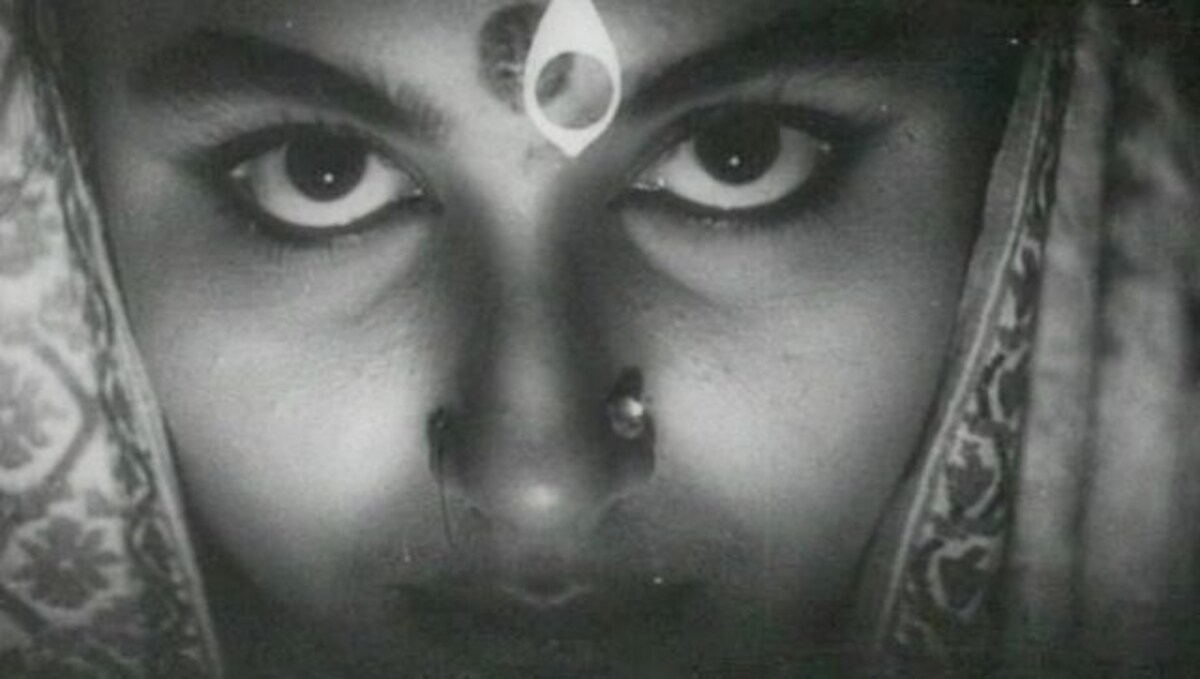Devi (1960) Directed by Satyajit Ray
In 19th century India, Doya marries into a well-off, extended Brahmin family. She and her husband, Umaprasad, are a love match, and all is well until Umaprasad goes away to study English in Calcutta. Then Doya’s elderly father-in-law, Kalikinkar, dreams that Doya is the material reappearance of the goddess Devi. Her father-in-law and brother-in-law begin to worship her as a reincarnation of the deity. Her sister-in-law alerts Uma of the craziness happening at home, but by the time he returns, the matter is really out of control with the whole community is worshipping Doya as the reappearance of Devi. Uma, an intelligent, secular man, gives his wife full support, but by this time even she is confused as to what has happened to her. Finally, Uma convinces her to flee with him, but at the last moment she has doubts. Maybe she really is who people think she is. She returns to her home, and an avoidable tragedy occurs involving a sick child, her nephew. Madness beckons, beyond even Uma’s control.
I don't really know where to begin with
Devi, a movie that could have been an excessive melodrama but instead plays like a modern tragedy. It is a tragedy about the damage caused by superstition and about women’s lack of power in a wholly patriarchal society. However, the human dimension, not the message, is at the forefront. Doya is a good person, a happy bride with a loving husband, but she is inexperienced and, as a woman in Hindu culture at this time, she has no agency whatsoever. Through no fault of her own and wholly ill-equipped to deal with the circumstance, she is thrust into a kind of religious/superstitious fanaticism that is completely overwhelms her. She is a finch caught in a hurricane. Her father-in-law and, certainly, her brother-in-law should know better, but they allow their religious beliefs to guide them. Only her sister-in-law, another woman, sees what is happening clearly. But even with the arrival of Doya’s intelligent and supportive husband, the damage is staggering and cannot be undone. Fanaticism and superstition have lives of their own, and it takes little to make them thrive and grow like a brush fire, regardless of the human cost.
Ray was often chastised by Bengali critics for being apolitical. Yet, in terms of the plight of women in Hindu society,
Charulata,
The Big City and
Devi show him to be more than a decade ahead of his time. In each film, women must overcome (or not) an unfair power imbalance that has been supported for centuries by all of India's religious and social institutions. Ray doesn't preach about it. He demonstrates the inequality through creating sympathetic, very human characters and examining what the pressures of powerlessness and religious stupidity do to them and their families. Ray approaches the issue as a humanist which only underscores how close humanism and feminism are at their core. No other Indian director, no other director anywhere for that matter, was tackling such potentially incendiary material at the time.
And none would have thought of doing so with such emotional depth. Though it never calls attention to itself, Ray’s technique is superb here and, as always, it is used only in service of his story, with no flash whatsoever. The subtle foreshadowing of key characters and issues in the first fifteen minutes of the film is brilliant as is his camera work throughout the move, which often involves incredibly delicate and subtle movement within the frame, movement that makes the most of the skill of his great cast. Ray makes us feel for these people; however misguided their nature, their pain has weight. Ultimately it is their singular tragedy that moved me. The implications sank in later. So did the technique.
subtitles




